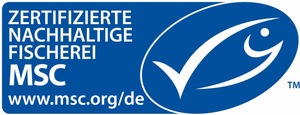Berlin (ots) – May 2nd is World Tuna Day. The United Nations has been proclaiming it annually since 2016 to raise awareness among consumers, politicians and retailers and to encourage them to think and rethink. The range of tuna with the MSC environmental seal is growing worldwide and especially in Germany, Austria and Switzerland. But some stocks are still overfished. Tuna, the MSC (Marine Stewardship Council) appeals, is a valuable resource that we should consume in moderation and only from sustainable catches.
- Popular: Tuna is the most popular fish species worldwide. Today more tuna is eaten worldwide than ever before
- Endangered: Some stocks are overfished, others have recovered
- Deutschland: The share of sales of MSC-certified tuna products in supermarkets has increased almost eightfold since 2018, increasing from 8% to 60%
- Austria: There is still room for improvement here: only a little more than 20% of the tuna in retail comes from controlled, sustainable fishing
- Switzerland: The country is and remains the most sustainable tuna market in the world
Tuna is the most economically important food fish in the world. At the same time, it plays a crucial role in maintaining the health and balance of the marine food chain in our oceans. Although significant successes have already been achieved, we must continue to increase our efforts to steer the global tuna fishery on a sustainable path. Currently, 100 fisheries worldwide have been certified by independent assessors according to the MSC environmental standard for sustainable fishing. Together, these fisheries catch approximately 1.6 million tons of tuna – equivalent to approximately 33% of the global tuna catch. A further 82 fisheries (20% of global catch) are currently in the assessment process.
This positive development is thanks to the increasing market demand for sustainably caught tuna. More and more brand manufacturers and retailers are relying on MSC-certified sustainable tuna sourcing, and more and more consumers are choosing to purchase tuna responsibly. They all provide fisheries with important incentives to comply with the strict and transparent environmental assessment of the MSC program (www.msc.org) deliver.
Germany, Austria and Switzerland are leading the way: 30% of global sales of MSC-certified tuna in DACH
With an MSC share of almost 95%, the Swiss retail trade is now the world leader in tuna and sustainability (1).
In Germany, too, the sustainability of tuna sales in retail has improved significantly in recent years: the quantitative share of tuna sales from controlled sustainable fishing has increased from 8% to around 60% today since 2018 (2).
In contrast, there is still an enormous sustainability gap in Austrian retail: only around 20 percent of the tuna sold in Austria’s supermarkets in 2023 came from controlled and certified sustainable fishing (3). All the more welcome is the commitment of the canned food manufacturer Vier Diamanten to completely convert its tuna range in Austria to MSC-certified products this year.
Preferably from a can
External market data from Circana (Germany) and Nielsen (Austria and Switzerland) suggests that the retail seafood market in all three countries has shown a steady decline since 2020. Tuna is one of the few fish species with stable to growing sales. In Germany, Austria and Switzerland, alongside salmon, it has occupied a top spot in terms of consumer popularity for years: in all three countries it is consistently in the top 3 most eaten types of fish and is most often served in a can. Around 76,000 tons of tuna were sold in German retail in 2023, 70% of which was canned (around 54,000 tons) – that corresponds to the sale of a good four cans of tuna per person per year. Also in Austria and the Switzerland Canned tuna is very popular: in 2023, 6,800 tons of canned tuna were sold in Austria – the equivalent of around six cans per capita per year, and in Switzerland 5,900 tons, which corresponds to sales of around five cans per capita per year (4).
Ines Biedermann, MSC Commercial Manager for Germany, Austria and Switzerland, comments: “The more clearly retailers and consumers demand fish from sustainable fishing, the greater the incentive for fisheries to make their fishing activities sustainable. The MSC is based on this basic assumption program. The current MSC tuna numbers show that this approach works – that’s very motivating.”
Sources:
(1) NielsenIQ 2023
(2) Around 2018-2023/ MSC internal Daten 2018-2023
(3) NielsenIQ 2023
(4) Calculation with 150g drained weight per can and total population
Questions & Contact:
Marine Stewardship Council (MSC)
Gerlinde Geltinger
+49 30 609 8552 80
gerlinde.geltinger@msc.org
